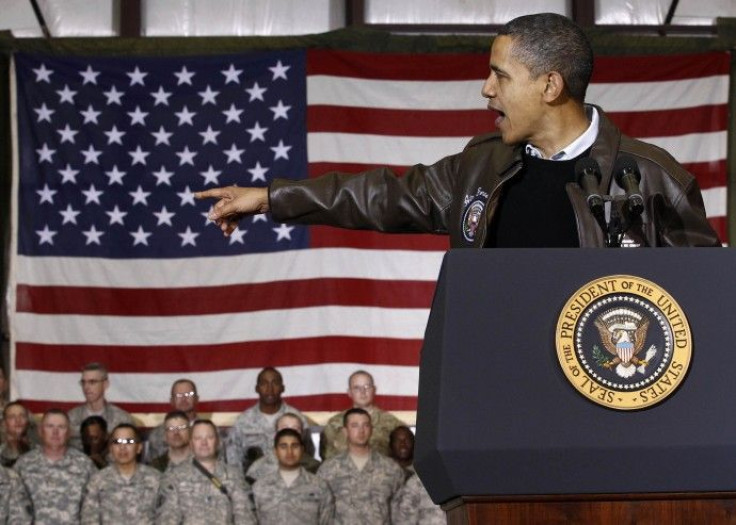Intelligence paints gloomy Afghan picture ahead of Obama's review

The war in Afghanistan is unlikely to be won, US Intelligence reports suggest. Even as President Barack Obama is all set to announce policy review on the war in Afghanistan, two classified reports state that it could be improbable to end Taliban and Al Qaeda insurgency in the Tribal regions of the country. The reports however, have fueled a bitter row between the intelligence agencies and the military over who has a better perspective and proximity in the war zone.
The Obama administration is expected to reiterate their stance today on withdrawing its troops starting mid next year and handing over the security to Afghan forces by the end of 2014. The President received the summary of the report earlier this week and met with senior Pentagon officials at the White House to review and make any final changes. Richard Holbrooke, the former special envoy to Afghanistan and Pakistan, who passed away on Monday, is believed to have played a key role in shaping the strategy.
The annual analysis is also likely to report progress despite widespread apprehensions within the government and of among international allies. However, in his recent trip to Afghanistan Obama maintained that, 'important progress' was being made in the region. Over 100,000 American forces are currently deployed in the country.
The US government's new plan could also include intensifying attempts to inflict severe causalities to the insurgents in the region to degrade them. Meanwhile, senior politicians in the US Congress are stepping up resistance to the administration's plan to continue spending $100 billion annually on Afghanistan.
One intelligence report on Pakistan blamed that the country is unable to keep a tab on insurgent activity on its borders. In a report published in the New York Times on Wednesday, senior intelligence officials maintained that the porous borders between Pakistan and neighboring Afghanistan are being fully used by Al Qaeda and Taliban insurgents who have been carrying out deadly attacks on US and NATO troops.
Officials from the CIA also restated their belief that insurgents have found safe havens in Pakistan which are a major impediment to military operations and it would be extremely difficult to win the war without the country's absolute cooperation. Reports also maintain that Pakistan army is failing to move aggressively against insurgent groups within its borders and shut down their sanctuaries in its tribal regions. The country receives about $2 billion in aid from Washington every year for military and civilian use.
The report named 'National Intelligence Estimates' presents the consensus view of the United States' 16 intelligence agencies. The military however has been contesting the reports submitted in October, citing that they ignored decisive gains of US army in Kandahar and Helmand provinces over the past six weeks. Officials complained that the reports were compiled by desk-bound analysts in Washington who have spent limited time in Afghanistan.
They are not on the ground living it day in and day out like our forces are, so they don't have the proximity and perspective, a senior defense official who spoke on the condition of anonymity told New York Times.
Meanwhile, reports from the International Committee of the Red Cross (ICRC) have been projecting a grim picture on the humanitarian front in the country's insurgent-prone southern region. ICRC, on Wednesday, maintained that civilian casualties in the Afghanistan have once again increased in comparison with previous years.
In a growing number of areas in the country, we are entering a new, rather murky phase in the conflict in which the proliferation of armed groups threatens the ability of humanitarian organizations to reach the people who need their help, said Reto Stocker, head of the ICRC delegation in Afghanistan.
Many people see fleeing as their only solution and many end up in camps for the displaced or with relatives in neighboring districts, he added.
© Copyright IBTimes 2024. All rights reserved.











